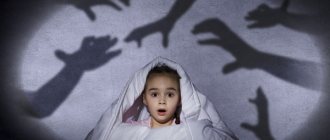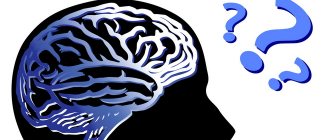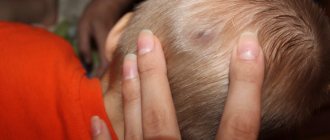In common parlance, young mothers refer to childhood tantrums and growth crises as “child psychosis.” From a medical point of view, everything is much more complicated and serious: psychosis in children is rare, making a diagnosis is not so easy, but at the same time, this disease requires mandatory treatment and observation. Childhood psychosis is not heart-rending screams and wallowing on the floor, which happen to almost every child. A psychotic disorder has a specific clinical picture, and in order to make a correct diagnosis in childhood, consultation with more than one specialist is usually necessary.
Schizophrenia
Timely identification and pharmacotherapy of the initial stage of schizophrenia in childhood and adolescence helps to improve the prognosis in the future. The early signs of this disorder are vague and similar to common puberty problems. However, after a few months the picture changes, and the pathology becomes more distinct.
It is believed that schizophrenia always manifests itself as delusions or hallucinations. In fact, early signs of schizophrenia can be very diverse: from obsessions, anxiety disorders to emotional impoverishment, etc.
Signs of mental disorder in school-aged children and adolescents:
- The child's warm feelings towards his parents weaken and his personality changes. Groundless aggression, anger, and irritation arise, although relationships with peers may remain the same.
- Initial symptoms can be expressed in the form of loss of former interests and hobbies, in the absence of new ones. Such children may wander aimlessly on the street or laze around the house.
- At the same time, lower instincts weaken. Patients lose interest in food. They do not feel hungry and may skip meals. In addition, teenagers become sloppy and forget to change dirty things.
A characteristic sign of pathology is a sharp decline in academic performance and loss of interest in school life. Personality changes are accompanied by unmotivated aggression. As the disease progresses, the symptoms become more obvious, and a specialist will be able to easily recognize the signs of schizophrenia.
Divide responsibilities between your children
Photo: pixabay.com
By not giving your children any homework at the age of 7, you are showing yourself to be a person who has failed internally. You yourself (yourself) have no core in your character. Easily doable everyday tasks, for example, washing the dishes or even washing at least your own laundry (fortunately, everything has its own household appliances and tools) are not the tasks that turn an “easy and carefree childhood” into a burden. A child - and a teenager - must learn to organize his responsibilities around the house, this will help him in the future. By correctly distributing some of the tasks and responsibilities according to age and strength, you will instill in your children skills that will save them many thousands of times in their lives. Remember that no one needs a spouse (no one needs a spouse) who (or who) has not learned anything; sooner or later life will force you to go through all this with a fight over yourself. Normally, this is something that goes without saying.
As your child grows, notice the overall results. From time to time, raise him to a higher level by giving him more and more responsible tasks.
Psychosomatic disorders
In adolescence, psychosomatic disorders often occur: abdominal or head pain, sleep disorders. These somatic problems are caused by psychological reasons associated with age-related changes in the body.
Stress and nervous tension caused by school and family troubles result in poor health in the teenager. The student has difficulty falling asleep in the evening or wakes up too early in the morning. In addition, he may suffer from nightmares, enuresis or sleepwalking. All of these disorders are indications for seeing a doctor.
Schoolchildren, both girls and boys, often suffer from obsessive headaches. In girls, it is sometimes associated with a certain period of the menstrual cycle. But mostly they arise without organic causes. They are caused by psychosomatic disorders as in respiratory diseases.
Painful sensations are caused by increased muscle tone, and prevent the child from studying normally at school and doing homework.
Guide your children through a sense of responsibility.
For example, you don’t need to remind your teenager a hundred times whether he brought everything with him to school the next day. Even if he gets a bad mark for forgotten homework in one of the lessons, coming without a notebook, or having to beg for a pen, because he has his own, again, forgotten or lost - his problems. Next time I will be more careful. These are not such fatal mistakes - getting a “failure”; the consequences of such forgetfulness are correctable. But the logic “action is responsibility” will be carefully worked out in his head.
Examination of children under 6 years of age
Assessment is more complex than assessing an adult patient. Toddlers lack the language and cognitive capabilities to describe their emotions and sensations. Thus, the doctor should rely mainly only on observation data of the child’s parents and educators.
The first signs of mental disorder in preschool children:
- Nervous and mental disorders after 2 years of age arise due to the fact that the mother limits the child’s independence and overprotects him while continuing to breastfeed the older baby. Such a child is timid, dependent on his mother, and often lags behind his peers in the development of skills.
- At the age of 3 years, mental disorders are expressed in increased fatigue, moodiness, irritability, tearfulness, and speech disorders. If you suppress the sociability and activity of a three-year-old child, this can lead to isolation and autism. There may be problems in interacting with peers in the future.
- Neurotic reactions in 4-year-old children are expressed in protest against the will of adults and hypertrophied stubbornness.
- The reason to seek help from a doctor regarding disorders in a 5-year-old child is the occurrence of symptoms such as poor vocabulary, loss of previously acquired skills, refusal of role-playing games and joint activities with peers.
When assessing the mental state of children, we must not forget that they develop within a family framework, and this greatly influences the child’s behavior.
A child with a normal psyche who lives in a family of alcoholics and is periodically exposed to violence may have signs of mental disorders. Fortunately, most childhood mental disorders are mild and respond well to treatment. In severe forms of pathology, treatment is carried out by a qualified child psychiatrist.
Health
To help children who have not been diagnosed with a mental disorder, researchers have released a list of 11 warning signs that are easily recognized.
, which can be used by parents and others.
This list is intended to help fill the gap between the number of children suffering from mental illness and those who actually receive treatment.
Research has shown that three out of four children with mental health conditions, including attention deficit hyperactivity disorder
, eating disorders and bipolar disorder
go undetected and do not receive proper treatment
.
Parents who notice any of the warning signs should contact their pediatrician or mental health professional for a psychiatric evaluation. Researchers hope the proposed list of symptoms will help parents distinguish normal behavior from signs of mental illness.
.
«Many people cannot be sure whether their child has a problem.
"says Dr.
Peter
S. Jensen, professor of psychiatry.
“ If a person has a “yes” or “no” answer, then it is easier for him to make a decision
.”
Identifying a mental disorder early in life will also allow children to receive treatment earlier, making it more effective. For some children, it may take up to 10 years between the time symptoms begin and the time they begin treatment.
To compile the list, the committee reviewed studies on mental disorders that included more than 6,000 children.
Here are 11 warning signs of mental disorders:
1. Feelings of deep sadness or withdrawal that last more than 2-3 weeks.
2. Serious attempts to harm or kill yourself, or plans to do so.
3. Sudden, overwhelming fear for no reason, sometimes accompanied by a strong heartbeat and rapid breathing.
4. Participation in many fights, including the use of weapons, or the desire to harm someone.
5. Violent, out-of-control behavior that may cause harm to self or others.
6. Not eating, throwing away food, or using laxatives to lose weight.
7. Severe anxieties and fears that interfere with normal activities.
8. Severe difficulty concentrating or being unable to sit still, which puts you in physical danger or causes you to fail academically.
9. Repeated use of drugs and alcohol.
10. Severe mood swings that lead to relationship problems.
11. Sudden changes in behavior or personality
These signs are not a diagnosis, and for an accurate diagnosis, parents should consult a specialist. In addition, the researchers explained that these signs do not necessarily appear in children with mental disorders.
Speech disorders in children have become a serious problem in our time. Today, more and more often, before a child enters school, parents are informed that their seven-year-old child still has not learned to pronounce some letters of his native language, and the touching and funny burr for relatives is nothing more than a pathology that will create difficulties during classroom activities . The saddest thing is that there is no trend towards reducing the number of such problems. On the contrary, every year more and more children need the help of a speech therapist. What is the reason for this phenomenon and what should parents remember? Let's talk about this.
The label is the child's enemy
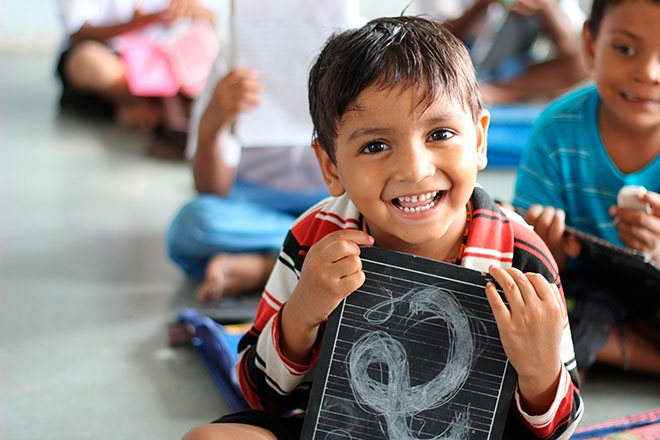
Photo: pixabay.com
Whether it’s a week-long failure at school in the same subject (or several subjects), or an unfulfilled assignment, this does not mean that your child is stupid. If he can ignore strangers - teachers, other students in the class - when they call him stupid, then he least expects this from his own people. You can’t hit a weak spot; any problem can be solved. Fs can be corrected by re-preparing and passing what you failed, and a miscalculation or forgetfulness can be corrected, since it is controlled by consciousness; the child can draw useful conclusions from what happened himself. But when you put a label on him, in order to remove it, the child needs to spend a lot of moral strength. With repetition, children will believe you no matter what you tell them, no matter how negative it may be: for example, they will develop the incorrect perception that they really cannot learn better.
Causes of speech disorders in children
All causes of speech disorders in children are divided into two large categories: organic (provoking disorders in the central or peripheral speech apparatus) and functional (preventing the normal functioning of the speech apparatus).
The group of organic factors includes:
1. Intrauterine pathologies leading to fetal malformations:
- Hypoxia;
- Viral diseases suffered by a woman during pregnancy;
- Injuries, falls and bruises of a pregnant woman;
- Rhesus conflict between mother and fetus;
- Violation of gestational age - prematurity (before 38 weeks) or postmaturity (after 40 weeks);
- Smoking, alcohol and drug abuse;
- Use of medications prohibited during pregnancy;
- Unsuccessful termination of a real pregnancy;
- Occupational hazards;
- Stress, emotional overload.
2. Heredity, genetic abnormalities.
3. Harmful effects of the birth period:
- Birth injuries that provoked intracranial hemorrhages;
- Asphyxia;
- Low weight of the newborn (less than 1500 g), followed by intensive resuscitation measures;
- Low Apgar score.
4. Diseases suffered by the child in the first years of life.
Among the functional causes of speech impairment in children are:
- Unfavorable social and living conditions;
- Somatic weakness;
- Psychological trauma caused by stress or fear;
- Imitating the speech of surrounding people.
Types of speech disorders in children and their symptoms
The main types of speech disorders in children include:
- Alalia is a condition in which the baby does not have hearing problems, but speech is completely or largely absent due to underdevelopment or pathologies of the areas of the brain responsible for the corresponding function. There are sensory and motor alalia. In the first case, the child is not able to understand someone else's speech: he recognizes sounds, but does not perceive the meaning of what is being said. Children suffering from motor alalia are not capable of learning and using language - they are unable to master sounds, syllables, and grammatical structures;
- Dysarthria is one of the relatively mild manifestations of anarthria (complete lack of speech). It occurs due to disorders of the innervation of the speech apparatus. Children with this diagnosis have general oral speech disorders, namely: unclear, blurred pronunciation of sounds; a very quiet or unnaturally harsh voice; acceleration or deceleration of speech rate, lack of fluency; disturbance of breathing rhythm when talking. A characteristic feature of dysarthria is difficulty chewing. Children suffering from such a deviation refuse solid foods and are reluctant to eat meat. In an attempt to feed the child something, parents succumb to his whims and switch him to soft food, as a result of which the development of the articulatory apparatus slows down even more;
- Dyslalia – colloquially called “tongue-tied”, is considered the most common speech disorder in children. A distinctive feature is the problematic pronunciation of one or more consonant sounds. In the medical literature, varieties of dyslalia are named according to the names of sounds in Greek: rhotacism (problems with the pronunciation of “r”), lambdacism (distortion of the sound “l”), thetism (unclear pronunciation of all consonants and their combinations, with the exception of “t”), sigmaism (incorrect reproduction of whistling and hissing sounds);
- Stuttering is a speech disorder known since ancient times, accompanied by disruptions in the tempo and rhythm of pronunciation due to spasms or convulsions affecting various parts of the speech apparatus. A child who stutters has difficulty pronouncing words, is forced to take long pauses, and repeats syllables or sounds several times. Most often, stuttering develops between the ages of 2 and 5 years; During this period, it is recommended to pay special attention to the prevention of speech disorders in children. If a child suddenly stops speaking and remains stubbornly silent for several days, you should consult a doctor, as this may be the first sign of pathology.
Correction of speech disorders in children
Correction of speech disorders in children requires an integrated approach, in which the use of psychostimulating and vasoactive medications is combined with psychotherapeutic and pedagogical methods of influence. In terms of typicality and persistence of external manifestations of speech disorders, alalia and dysarthria are in the first position; Various types of dyslalia and stuttering are somewhat less pronounced and easier to treat. 4.7 out of 5 (31 votes)
The child's psyche is very sensitive and easily vulnerable, so many provoking factors can cause mental disorders at such a young age. The clinical severity of symptoms, their duration and reversibility depend on the age of the child and the duration of the traumatic events.
Adults often attribute pathology of development and behavior to the child’s age, believing that over the years his condition can normalize. Oddities in the mental state are usually attributed to childhood whims, age-related infantilism and a lack of understanding of things happening around. Although in fact all these manifestations may indicate mental problems.
It is customary to distinguish four groups of mental disorders in children:
- autism spectrum disorders;
- mental retardation;
- attention deficit disorder.
What can trigger a mental disorder?
Mental disorders in childhood can be caused by many reasons. Psychological, social and biological factors influence a child's mental health.
This includes:
- genetic predisposition to the occurrence of mental illnesses;
- organic brain lesions;
- conflicts in the family and at school;
- dramatic life events;
- stress.
Children can often react neurotically to their parents' divorce. In addition, children from disadvantaged families are more likely to develop mental problems.
Having a sick relative can lead to mental disorders. In this case, the cause of the disease may affect the tactics and duration of further treatment.
How do mental disorders manifest in children?
Symptoms of mental illness are:
- fears, phobias, increased anxiety;
- nervous tics;
- obsessive movements;
- aggressive behavior;
- mood lability, emotional imbalance;
- loss of interest in usual games;
- slowness of body movements;
- thinking disorders;
- isolation, depressed mood for two weeks or longer;
- auto: self-harm and suicide attempts;
- which are accompanied by tachycardia and rapid breathing;
- symptoms of anorexia: refusal to eat, inducing vomiting, taking laxatives;
- problems with concentration, hyperactive behavior;
- addiction to alcohol and drugs;
- changes in behavior, sudden changes in the child’s character.
Children are more prone to nervous disorders during age-related crises, namely at the ages of 3-4 years, 5-7 years and 12-18 years.
Before the age of one year, psychogenic reactions are the result of dissatisfaction of the main vital needs: sleep and food. At 2-3 years old, children may begin to suffer due to excessive attachment to their mother, which leads to infantilization and developmental inhibition. At 4-5 years of age, mental illness can manifest itself in nihilistic behavior and protest reactions.
You should also be wary if the child experiences developmental degradation. For example, the baby’s vocabulary becomes scarcer, he loses already acquired skills, becomes less sociable and stops taking care of himself.
At the age of 6-7 years, school is a stressful factor. Often mental disorders in these children are manifested psychosomatically by deterioration of appetite and sleep, fatigue, headaches and dizziness.
In adolescence (12-18 years), mental disorders have their own characteristics of symptoms:
- The child becomes prone to melancholy, anxiety, or, conversely, to aggressiveness and conflict. A common feature is emotional instability.
- The teenager shows vulnerability to other people's opinions, outside assessments, excessive self-criticism or inflated self-esteem, and disregard for adult advice.
- Schizoid and cyclical.
- Children demonstrate youthful maximalism, theorizing, philosophizing, and many internal contradictions.
It must be remembered that the above symptoms do not always indicate the presence of a mental illness. Only a specialist can understand the situation and determine the diagnosis.
Treatment options
It is usually very difficult for parents to decide to visit a psychotherapist. Recognition of mental disorders in a child is often associated with various restrictions in the future, ranging from the need to attend a special school and ending with a limited choice of specialty. Because of this, changes in behavior, developmental features, and personality quirks that may be symptoms of mental dysfunction are often ignored.
If parents want to somehow solve the problem, treatment often begins at home using alternative medicine. Only after long-term failures and deterioration of the offspring’s health does the first visit to a qualified medical specialist take place.
Therefore, family members should be sufficiently aware of the signs of mental dysfunction to be able to promptly identify abnormalities in their child and seek medical help. You should not try to treat a child on your own, because a timely visit to a specialist may depend on the child’s mental health.
The correct treatment can only be chosen by a child psychiatrist: a psychiatrist or psychotherapist. Most disorders can be treated over a long period of time. Children are usually prescribed the same medications as adults, but the dose is adjusted according to age.
Antipsychotics and stimulants are recognized as effective. Plays a huge role, because parents should know how to behave with a sick child and how important it is to surround him with attention and love.
The concept of mental disorder in children can be quite difficult to explain, let alone define, especially on your own. Parents' knowledge is usually not enough for this. As a result, many children who could benefit from treatment do not receive the help they need. This article will help parents learn to identify warning signs of mental illness in children and highlight some options for help.
Why is it difficult for parents to determine the state of mind of their child?
Unfortunately, many adults are unaware of the signs and symptoms of mental illness in children. Even if parents know the basic principles of recognizing serious mental disorders, they often find it difficult to distinguish mild signs of deviations from normal behavior in children. And the child sometimes does not have enough vocabulary or intellectual baggage to explain his problems verbally.
Concerns about stereotypes associated with mental illness, the cost of using certain medications, and the logistical complexity of possible treatment often delay treatment or force parents to attribute their child's condition to some simple and temporary phenomenon. However, a psychopathological disorder that is beginning to develop cannot be restrained by anything other than proper, and most importantly, timely treatment.
The concept of mental disorder, its manifestation in children
Children can suffer from the same mental illnesses as adults, but they manifest them in different ways. For example, depressed children often show more signs of irritability than adults, who tend to be more sad.
Children most often suffer from a number of diseases, including acute or chronic mental disorders:
Children suffering from anxiety disorders such as obsessive-compulsive disorder, post-traumatic stress disorder, social phobia and generalized anxiety disorder show strong signs of anxiety, which is a persistent problem that interferes with their daily activities.
Sometimes anxiety is a traditional part of every child's experience, often moving from one developmental stage to the next. However, when stress takes an active role, it becomes difficult for the child. It is in such cases that symptomatic treatment is indicated.
- Attention deficit or hyperactivity disorder.
This disorder typically includes three categories of symptoms: difficulty concentrating, hyperactivity, and impulsive behavior. Some children with this condition have symptoms of all categories, while others may have only one sign.
This pathology is a serious developmental disorder that manifests itself in early childhood - usually before the age of 3 years. Although symptoms and their severity are prone to change, the disorder always affects a child's ability to communicate and interact with others.
- Eating disorders.
Eating disorders, such as anorexia and gluttony, are quite serious illnesses that threaten the life of a child. Children can become so preoccupied with food and their weight that it prevents them from focusing on anything else.
- Mood disorders.
Affect disorders such as depression and depression can lead to persistent feelings of sadness or mood swings that are much more severe than the usual variability common in many people.
- Schizophrenia.
This chronic mental illness causes the child to lose touch with reality. Schizophrenia most often appears in late adolescence, from about 20 years of age.
Depending on the child's condition, illnesses can be classified as temporary mental disorders or permanent ones.
Don’t “extinguish” your child if he is offended or annoyed by something, as well as if he is happy about something
Every emotion in your children does not go unanswered by you. One way or another, you begin to empathize as soon as it dawns on you what has happened at that moment. A constantly upset child is not the best sight for parents. They, in turn, try to distract him, “lubricate” unpleasant emotions, and please him with something. This can help. But at the same time, sometimes it’s useless. But the child will not understand himself better if you ban his negative emotions. Even when your child is dissatisfied with what happened, first of all, he realizes that this is no less important. It is your responsibility as a parent to show him some empathy, but do not (see one of the previous rules) complain about specific circumstances. Don’t forget that bad emotions will be forgotten sooner or later, but positive ones will remain for a long time. The main thing is to let the child understand that he himself is able to cope with undesirable consequences.
Main signs of mental illness in children
Some markers that a child may have mental health problems are:
Mood changes.
Look for dominant signs of sadness or melancholy that last for at least two weeks, or severe mood swings that cause problems in relationships at home or at school.
Too strong emotions.
Acute emotions of overwhelming fear for no reason, sometimes combined with tachycardia or rapid breathing, are a serious reason to pay attention to your child.
Uncharacteristic behavior
. This may include sudden changes in behavior or self-image, as well as dangerous or out of control actions. Frequent fights with the use of third-party objects, a strong desire to harm others are also warning signs.
Difficulty concentrating
. The characteristic manifestation of such signs is very clearly visible at the time of preparing homework. It is also worth paying attention to teachers’ complaints and current school performance.
Unexplained weight loss.
Sudden loss of appetite, frequent vomiting, or use of laxatives may indicate an eating disorder;
Physical symptoms
. Compared to adults, children with mental health problems may often complain of headaches and stomach pains rather than sadness or anxiety.
Physical damage.
Sometimes mental health conditions lead to self-injury, also called self-harm. Children often choose far inhumane methods for these purposes - they often cut themselves or set themselves on fire. Such children also often develop thoughts of suicide and attempts to actually commit suicide.
Substance abuse.
Some children use drugs or alcohol to try to cope with their feelings.
Symptoms of childhood psychosis
Psychosis in children manifests itself in different ways, the symptoms in different forms of pathology are heterogeneous. However, most often a certain set of symptoms appears, such as:
- Hallucinations. The child sees objects, creatures, events that do not exist in reality. Hears voices, smells, experiences tactile sensations of false origin.
- Rave. The patient's consciousness is confused, which is clearly manifested in his speech. There is no meaning, coherence, or consistency in it.
- Inappropriate behavior, for example, inappropriate fun, uncontrollable pranks. The child suddenly, out of the blue, becomes extremely irritable, begins to break toys, things, and hurts animals.
- Aggression, anger. When visiting school or kindergarten, he speaks rudely and angrily with other children, is capable of calling names or hitting, and is often aggressive with adults. He reacts to insignificant reasons with sharp irritation.
- Appetite is unstable: from strong greed for food to complete refusal of it.
- Stupor. He freezes in one position for a long time, the position of his body and facial expressions do not change, his gaze freezes, his face expresses suffering, and does not react to external stimuli.
- Abrupt change of state. Stupor is suddenly replaced by extreme excitability, high motor activity, combined with an aggressive attitude towards others.
- Affects. Euphoria, fear, frequent attacks of melancholy, resentment, tears up to hysterical sobs.
- Doesn't sleep well at night, but constantly wants to sleep during the day. Headaches, high fatigue without external causes.
- A fever-like condition (in combination with symptoms of impaired consciousness). The child has cold skin, heavy sweating, dry lips, and dilated pupils.
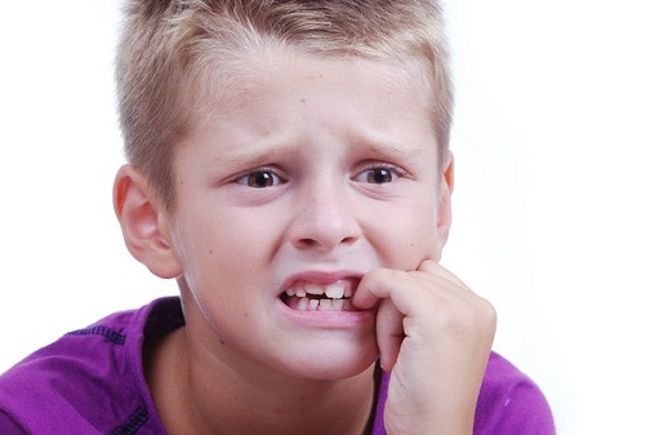
Signs of destruction of consciousness should immediately cause alarm among parents. A child in the acute stage of the disease cannot attend school or kindergarten and needs urgent hospitalization.
But is it possible for an ordinary person without medical education to distinguish children's games and fantasies from hallucinations and delusions? After all, a little boy, while playing, imagines himself as a knight saving the princess from an evil dragon. Remember that in the case of psychopathy, a number of symptoms will be noticeable that indicate clouding of reason. Thus, a mentally ill person will actually see an evil monster and behave accordingly - showing strong fear, aggression and other signs of a distorted perception of the world.
Actions of parents if a child is suspected of having mental disorders
If parents are truly concerned about their child's mental health, they should contact a professional as soon as possible.
The clinician should describe the present behavior in detail, focusing on the most striking discrepancies with the earlier period. For more information, before visiting a doctor, it is recommended to talk with school teachers, class teacher, close friends or other people who spend any long time with the child. As a rule, this approach is very helpful in making up your mind and discovering something new, something that a child would never show at home. We must remember that there should be no secrets from the doctor. And yet - there is no panacea in the form of tablets for.
Your child is not the “navel of the earth”
Unfortunately, our country still has a considerable number of families where the child is instilled - directly or indirectly - with egocentrism. Adults indulge such children in every possible way, trying to “do everything” for them. At the same time, such parents put off their personal and pressing questions “until better times,” just so that their dear child feels like a fish in an aquarium - which has no questions or problems.
Self-sacrifice on the part of such parents will not give anything to their children. The child grows up infantile, self-confident, lives by the principle “I can do everything, let the whole world wait.” The results of such “under-education” are deplorable - having become an adult, such a person continues to believe that society owes him everything, but nothing would happen to him for it. Having left his parents' home, such a young man lives for a long time in a state of psychological discomfort. And it’s good if, on this basis, he still comes to his senses and doesn’t give up on it.
Instill in your children the ability to invest their strength in what they will ultimately give to people. It is stupid to expect something from others without giving anything in return. This is one of the fundamental rules that helps a person who later becomes an adult put himself in the right framework.
General actions of specialists
Mental health conditions in children are diagnosed and treated on the basis of signs and symptoms, taking into account the impact of psychological or mental health problems on the child's daily life. This approach also allows us to determine the types of mental disorders of the child. There are no simple, unique or 100% guaranteed positive tests. To make a diagnosis, the doctor may recommend the presence of related professionals, such as a psychiatrist, psychologist, social worker, psychiatric nurse, mental health educators, or behavioral therapist.
The doctor or other professionals will work with the child, usually on an individual basis, to determine first whether the child is truly abnormal based on diagnostic criteria or not. For comparison, special databases of child psychological and mental symptoms are used, which are used by specialists all over the world.
In addition, the doctor or other mental health provider will look for other possible reasons to explain the child's behavior, such as a history of previous illness or trauma, including family history.
It is worth noting that diagnosing childhood mental disorders can be quite difficult, since expressing their emotions and feelings correctly can be a serious challenge for children. Moreover, this quality always varies from child to child—there are no identical children in this regard. Despite these challenges, an accurate diagnosis is an integral part of proper, effective treatment.
Attention Deficit Disorder
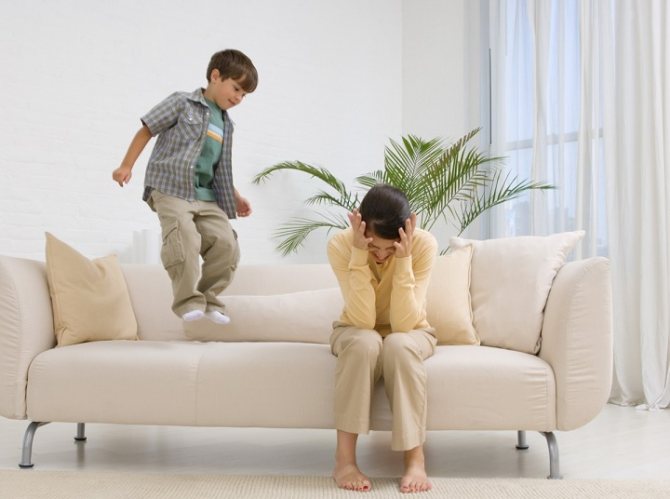
Attention deficit disorder in children is diagnosed much more often than other mental illnesses. It is characterized by an inability to concentrate on anything, hyperactivity, and poor control over one’s behavior.
The symptoms of the disease are pronounced, and the disease can be recognized before they appear. A child may have attention deficit disorder if he:
- excited, easily excitable;
- quickly distracted from work, cannot concentrate on a specific activity;
- often interrupts adults and other children, tries to become the first participant in all games, in lessons, without waiting for his turn;
- absent-minded;
- talks a lot and non-stop;
- wants to participate in all games, even those that are obviously dangerous;
- cannot devote even a short period of time to one activity.
Attention deficit disorder in children is a consequence of factors such as: genetic predisposition, various brain damage, and central nervous system diseases.
At first glance, it may seem that this syndrome and accompanying mental disorders are easy to cure, but in reality they are quite difficult to correct. With age, hyperactivity may decrease, but it is rarely possible to completely get rid of the consequences of the syndrome. But it is worth remembering that with any prognosis, the disease must be treated. If the syndrome is ignored, adults with a history of attention deficit become rude, dependent on addictions, do not get along well with people, and are often unable to maintain harmonious relationships in the family.
Various methods and directions are used to correct behavior. This could be medication, a special diet, or classes with adults aimed at reducing the mental manifestations of the disease.
General therapeutic approaches
Common treatment options for children who have mental health problems include:
- Psychotherapy.
Psychotherapy, also known as “talk therapy” or behavior therapy, is a way to treat many mental health problems. Speaking with a psychologist, while showing emotions and feelings, the child allows you to look into the very depths of his experiences. During psychotherapy, children themselves learn a lot about their condition, mood, feelings, thoughts and behavior. Psychotherapy can help a child learn to respond to difficult situations while healthy coping with problematic barriers.
- Pharmacological therapy.
- Combination of approaches.
In the process of searching for problems and their solutions, specialists themselves will offer the necessary and most effective treatment option. In some cases, psychotherapy sessions will be quite enough, in others, it will be impossible to do without medications.
It is worth noting that acute mental disorders are always easier to treat than chronic ones.
Parental help
At such moments, the child needs the support of his parents more than ever. Children with mental health diagnoses, just like their parents, typically experience feelings of helplessness, anger and frustration. Ask your child's doctor for advice on how to change the way you interact with your son or daughter and how to cope with difficult behavior.
Look for ways to relax and have fun with your child. Compliment his strengths and abilities. Explore new techniques that can help you understand how to calmly respond to stressful situations.
Family counseling or support groups can be a good help in treating childhood mental disorders. This approach is very important for parents and children. This will help you understand your child's illness, his feelings, and what you can do together to provide maximum help and support.
To help your child succeed in school, keep your child's teachers and school officials informed about your child's mental health. Unfortunately, in some cases, you may have to change your educational institution to a school whose curriculum is designed for children with mental problems.
If you are concerned about your child's mental health, seek professional advice. No one can make a decision for you. Don't avoid help because you are ashamed or afraid. With the right support, you can find out the truth about whether your child has disabilities and can explore treatment options, thereby ensuring your child continues to have a decent quality of life.
A child should not dictate his own rules to the family.

Photo: pixabay.com
As a result, a child, upon becoming an adult, often exercises power over his parents - and his sisters and brothers, who can already be considered adults. In other words, he will try to remake the rest of the household to suit his preferences. Do not forget. That a child or even a teenager is not yet an adult, he cannot be considered equal to them, much less superior. However, this does not mean that the child’s opinion matters nothing. He can be given a little freedom - but not so much that it becomes a problem for the rest of the family, violating the interests of everyone in the house. A child can choose anything according to his preference - but when parents see this as a danger both for himself and for others, they must intervene and correct his choice.
Children who impose their preferences on the rest of the family realize that adults are helpless and indecisive - which ultimately creates discord in the safety and security of the former.
